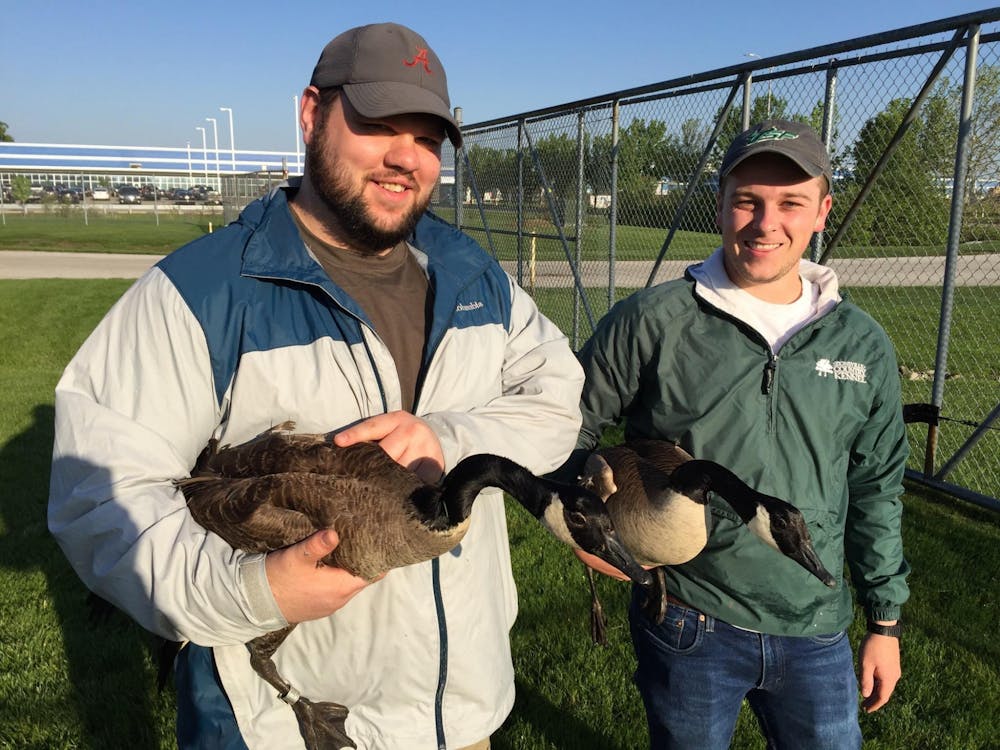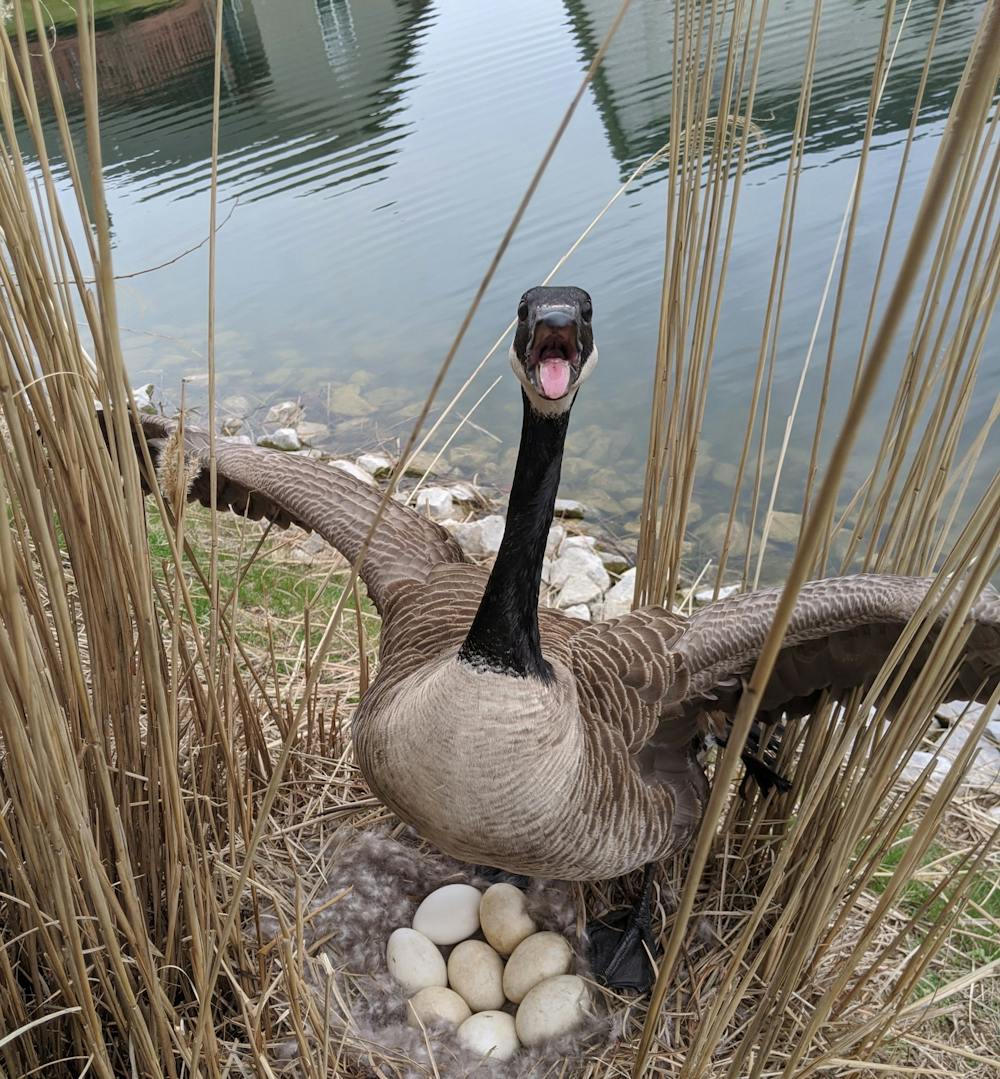Ball State’s Canada geese and its student population have had a love-hate relationship for long — with light-hearted social media posts and an Instagram page created specifically for these feathered honkers.
David Shearer, doctoral student who was leading a Ball State student research team studying the birds’ migration and nesting habits, said in an email being close to wildlife can make the connection between people and nature closer.
“I feel like having geese and other wildlife on a university campus can be enriching for all who occupy the area,” he said. “When I started here at Ball State, I was amazed to see that they even have an Instagram account dedicated to the Canada geese on campus.”
Shearer said geese attacks are common during nesting periods. According to the Indiana Department of Natural Resources (DNR) website, these geese are particularly aggressive during breeding and nesting season with most problems in metropolitan areas occurring from March through June.
“During this time, geese can be very territorial, especially the male of a pair,” Shearer said. “Which only makes sense; these geese are looking for a chance that comes once a year to pass on their genetic information and they protect that chance as much as they can.”
However, Shearer said he believes minimal human-geese interaction during the stay-at-home orders amid the COVID-19 pandemic has led to fewer reports of geese attacking people.
“I think that COVID-19 has given geese some ‘rest’ from humans, limiting the conflict we often see with human-goose interactions,” he said.
Shearer said the relationship between people and geese is beneficial, but it also has potential disadvantages, especially when people put their attention on negative interactions with the birds.
Alex Bird, graduate biology major working on a thesis involving urban Canada geese, said in an email that many people have a negative view of geese, which is mainly reflected in their negative interactions.
“The relationship between geese and humans seems to be one defined predominantly by the negative interactions between the two species,” he said. “The generally negative opinion people have as it pertains to Canada geese hasn’t seemed to impact their success in urban environments though.”

(Left to right) David Shearer, doctoral student, and Alex Bird, graduate biology major, pose for a photo after successfully capturing some Canada geese. Shearer said the COVID-19 pandemic has given geese some rest from humans. David Shearer, Photo Provided
Bird said geese and other animals try to ignore environmentally stimulating factors like COVID-19.
“Prior to COVID, campus geese may have been more comfortable within a closer proximity to humans than they will be post-COVID simply due to their limited interactions with humans over these past four months,” he said. “The adults that were born prior to this season will likely resume being ‘calm’ shortly after being reintroduced to large groups of people.”
While the coexistence of Cardinals and geese might be up for debate, Indiana DNR advises against people feeding geese. Doing so, it states, may lead to these active grazers congregating, damaging landscape with large amounts of excrement and clearing out lawns, turning them into barren, dirt areas.
More information on Canada geese can be found on the DNR’s website, including a “conflict resolution” document for those having troubles co-existing with the honkers.
Contact Weiyu Ding with comments at wding@bsu.edu or on Twitter @WeiyuDing.





